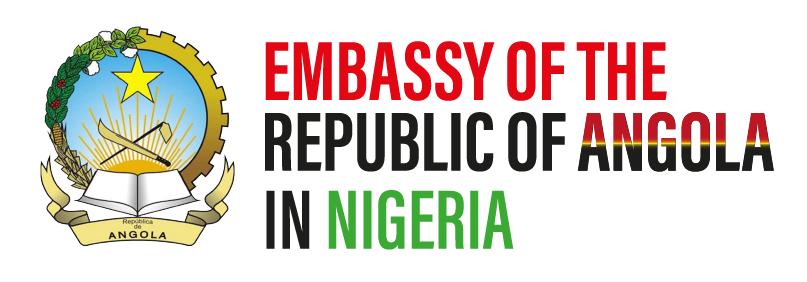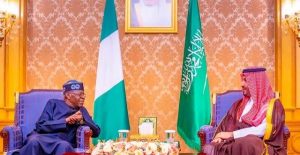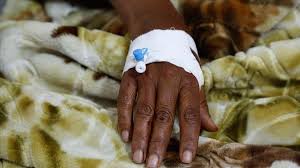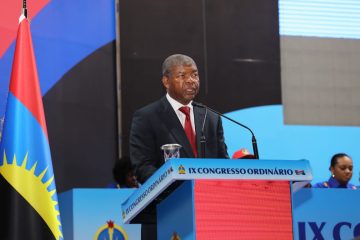President Bola Ahmed Tinubu and Saudi Crown Prince Mohammed bin Salman have agreed to explore ways to bolster Nigeria’s economy through energy, agriculture, and infrastructure.
They also considered establishing a Nigeria-Saudi Business Council to drive bilateral ties between the two oil-producing nations.
The two leaders resolved on these at the sidelines of the Joint Arab-Islamic Summit in Riyadh, Saudi Arabia on Monday.
Tinubu arrived at the Presidential Wing of the Nnamdi Azikiwe International Airport at about 8 pm yesterday.
He was received by senior members of his administration, including his Chief of Staff, Femi Gbajabiamila; Finance and Coordinating Minister of the Economy; Wale Edun and Federal Capital Territory Minister Nyesom Wike.
Special Adviser to the President on Information and Strategy, Bayo Onanuga, said in a statement yesterday that Crown Prince Mohammed pledged his support for Nigeria’s ongoing economic reforms.
According to Onanuga, the Prince likened the reforms to his efforts to stabilise and strengthen Saudi Arabia since becoming Prime Minister.
He assured Tinubu of his support and promised to drive his team towards realising joint goals in the discussed sectors.
One focus of the talks was the Saudi Agricultural and Livestock Investment Company (SALIC), which acquired a 35.43 percent stake in Nigeria’s agricultural giant, Olam by investing $1.24 billion in 2022.
Further investments from SALIC are under consideration to make Olam one of the world’s largest agro-allied enterprises.
In attendance were high-ranking Saudi officials, including Minister of National Guard Prince Abdullah bin Bandar and Minister of Defence Prince Khalid bin Salman.
Onanuga said in the statement that the Joint Arab-Islamic Summit renewed the mandate of Nigeria and other member states on the ministerial committee assigned to engage with global leaders in seeking an end to the ongoing war in Gaza and Lebanon.
This decision was part of the resolution issued after the summit, in Riyadh.
President Tinubu and other leaders from the Organisation of Islamic Cooperation (OIC) and the League of Arab States were in attendance.
The Joint Arab-Islamic Ministerial Committee led by the Kingdom of Saudi Arabia was formed by a resolution at the First Joint Arab-Islamic Summit.
The group includes the foreign ministers of Nigeria, Egypt, Qatar, Turkey, Indonesia, Palestine, and Jordan.
In its final resolution, the summit urged the ministerial committee to “intensify its efforts and expand them to include working on ending the aggression on Lebanon.”
The committee will submit periodic reports, which the secretariats of the OIC and the League of Arab States will circulate to member states.
The committee has also been tasked with further engaging actors across the Global South in the efforts to strengthen international support towards ending the war and Israeli occupation.
The resolution stressed the importance of protecting sea lanes by rules of international law and welcomed the signing of the tripartite mechanism by the League of Arab States, OIC, and the African Union to support the Palestinian cause.
The summit praised African Union’s steadfast support for Palestine.
The leaders condemned recent Israeli military actions in northern Gaza, describing them as “crimes of genocide.”
It also criticised ‘’torture, executions, disappearances, and “ethnic cleansing ” in the troubled Gaza.
Besides, they flayed ongoing efforts to solidify Israel’s presence in the occupied East Jerusalem which they reaffirmed as the “eternal capital” of Palestine.
The leaders called for the unification of the West Bank, Gaza Strip, and East Jerusalem under a sovereign Palestinian state.
The resolution reiterated “the full sovereignty of the State of Palestine over occupied East [Jerusalem], the eternal capital of Palestine”.
It rejected any Israeli actions aimed at altering the city’s identity or consolidating its occupation.
The summit also expressed unwavering support for Lebanon’s security, stability, sovereignty, and the safety of its citizens.



